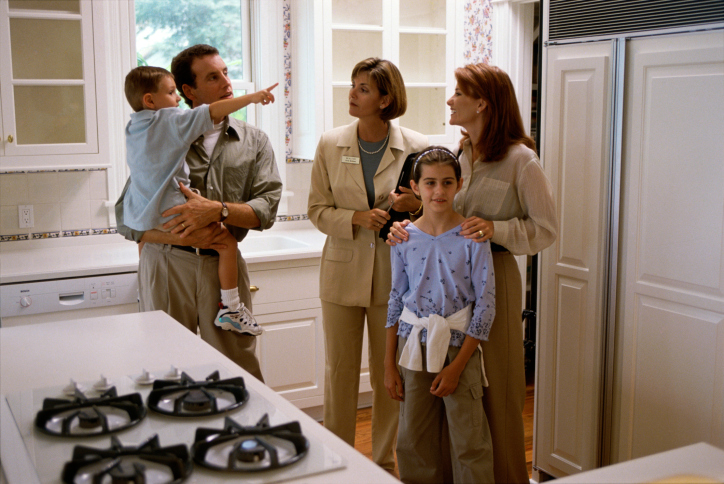 When you are preparing to list your home for sale, you may take various steps to stage the interior so that it is appealing to a potential buyer. In addition to various steps you may take with staging the interior, you want to pay attention to your yard as well. During the spring months, many yards look fresh and vibrant, but they also need some extra care in order to boost curb appeal and make a great first impression on buyers.
When you are preparing to list your home for sale, you may take various steps to stage the interior so that it is appealing to a potential buyer. In addition to various steps you may take with staging the interior, you want to pay attention to your yard as well. During the spring months, many yards look fresh and vibrant, but they also need some extra care in order to boost curb appeal and make a great first impression on buyers.
Focus On Your Flower Beds
Whether you have one small flower bed or several sprawling areas of beds, you should ensure that all of the vegetation looks fresh and tidy. Trim bushes, and add bright spring annuals to brighten up the space. Pull weeds, and add a layer of fresh mulch to your flower beds to give them a finished, well-maintained look.
Keep The Lawn Neat And Tidy
During the spring months, your lawn may revive from its dormant winter state, and you may find it growing rapidly. The green hue of a spring lawn can have a powerful benefit to curb appeal, but you want to keep the lawn trimmed and edged regularly to give it a manicured appearance. This can also minimize the impact of the look of weeds that may occasionally crop up throughout the spring months.
Pay Attention To Your Patio And Entryway
While your vegetation will require some effort to maintain while you list your home, you do not want to overlook your patio and entryway. These are often visible from the street, and they will be viewed up-close when buyers tour your home. Ensure that the area is clean, and power wash it if necessary. Consider updating front door hardware and the entry mat if they appear worn or dated. You may also need to sweep these areas regularly while your home is listed for sale.
Staging your property can help you to sell your property more quickly and for top dollar, but your staging efforts should not be focused entirely on the interior of your home. Your landscaping also requires extra effort when you are getting your home ready to sell, and these tips can all help you to spruce up your landscaping with beautiful results. You may seek more customized information tailored to your property when you speak with a real estate agent about listing your home.
 Depending on where you live, selling your house in the spring could take a few weeks to a few months. Although people are in the market to buy a home all throughout the year, spring time appeals to buyers who may be planning to use an income tax refund to help with the down-payment or closing costs. If you want to sell fast make sure you pay attention to the details like curb appeal, freshening the interior, and pricing your home right.
Depending on where you live, selling your house in the spring could take a few weeks to a few months. Although people are in the market to buy a home all throughout the year, spring time appeals to buyers who may be planning to use an income tax refund to help with the down-payment or closing costs. If you want to sell fast make sure you pay attention to the details like curb appeal, freshening the interior, and pricing your home right. When you make the decision to sell your home, you may eagerly seek assistance from a skilled real estate agent. A real estate agent offers important services that can help you to more successfully and easily sell your home in the fastest amount of time and for the best price. This is a professional who is committed to helping you achieve your goal and who will not be compensated for his or her efforts unless successful. With a closer look at how real estate commissions are earned, you will see that your agent will work hard for his or her compensation.
When you make the decision to sell your home, you may eagerly seek assistance from a skilled real estate agent. A real estate agent offers important services that can help you to more successfully and easily sell your home in the fastest amount of time and for the best price. This is a professional who is committed to helping you achieve your goal and who will not be compensated for his or her efforts unless successful. With a closer look at how real estate commissions are earned, you will see that your agent will work hard for his or her compensation. One of the more common steps that homeowners will take when preparing to list their home for sale involves repainting the walls. Walls can easily give the home a worn, drab look when they have visible signs of dirty, smudgy fingerprints and other unsightly blemishes.
One of the more common steps that homeowners will take when preparing to list their home for sale involves repainting the walls. Walls can easily give the home a worn, drab look when they have visible signs of dirty, smudgy fingerprints and other unsightly blemishes. If you are thinking about listing your home for sale, one of the biggest factors that may be holding you back from pulling the trigger on this decision is the value of your home. You may have a decent idea about the value of your home by researching other listings in your community, but you may not be able to pinpoint a fair asking price that would get your home sold quickly without leaving money on the table. The fact is that your knowledgeable real estate agent will provide you with a valuation up-front, and this can help you to make a more informed decision. There are several components to the valuation that you may need to know more about.
If you are thinking about listing your home for sale, one of the biggest factors that may be holding you back from pulling the trigger on this decision is the value of your home. You may have a decent idea about the value of your home by researching other listings in your community, but you may not be able to pinpoint a fair asking price that would get your home sold quickly without leaving money on the table. The fact is that your knowledgeable real estate agent will provide you with a valuation up-front, and this can help you to make a more informed decision. There are several components to the valuation that you may need to know more about. Your home may be one of your largest assets, and you certainly want to take steps to get the highest price possible for it when you list it on the market to sell. In addition, you may have plans to purchase a new home or to take other similar steps when list your home, so you may need to your house to sell quickly. Staging your home is a great way to present it in the best possible light for potential buyers to see. While there are dozens of staging tips and ideas that you may use, there are a few that are rather simple and affordable for most to complete.
Your home may be one of your largest assets, and you certainly want to take steps to get the highest price possible for it when you list it on the market to sell. In addition, you may have plans to purchase a new home or to take other similar steps when list your home, so you may need to your house to sell quickly. Staging your home is a great way to present it in the best possible light for potential buyers to see. While there are dozens of staging tips and ideas that you may use, there are a few that are rather simple and affordable for most to complete.